AMD Announces Ryzen and Athlon 3000 C-Series Processors
Zen comes to Chromebooks
AMD's vaunted Zen microarchitecture and the TSMC 14nm process have finally made their way into Chromebooks in the form of the company's new Ryzen and Athlon 3000 C-Series processors. These new chips stretch up to quad-core, eight-thread Zen+ designs paired with the Vega integrated graphics engine.
To address the full breadth of the fast-growing Chromebook market, the new C-series chips join the Athlon A-series processors that come with the 28nm process and Bristol Ridge architecture.

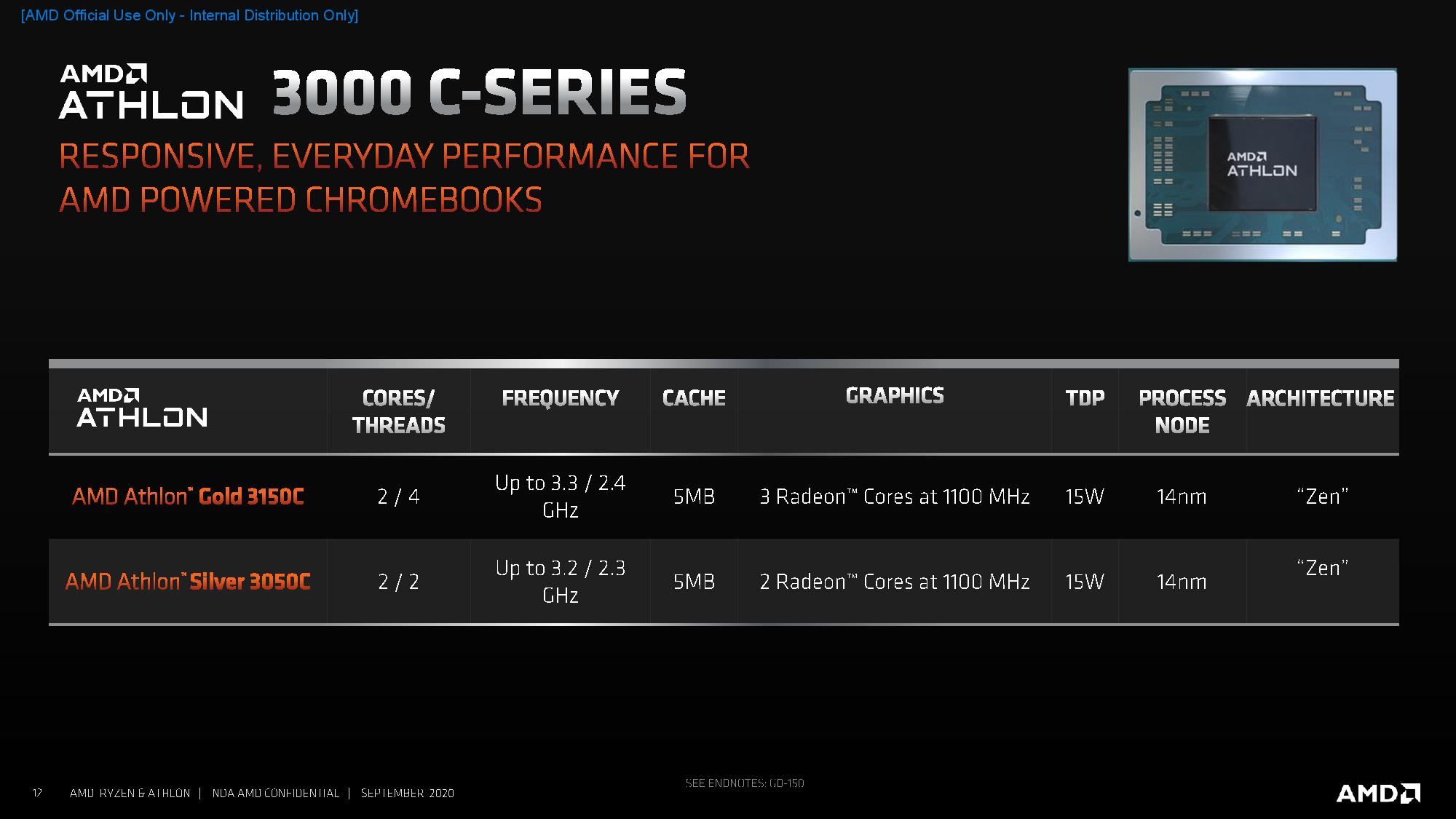
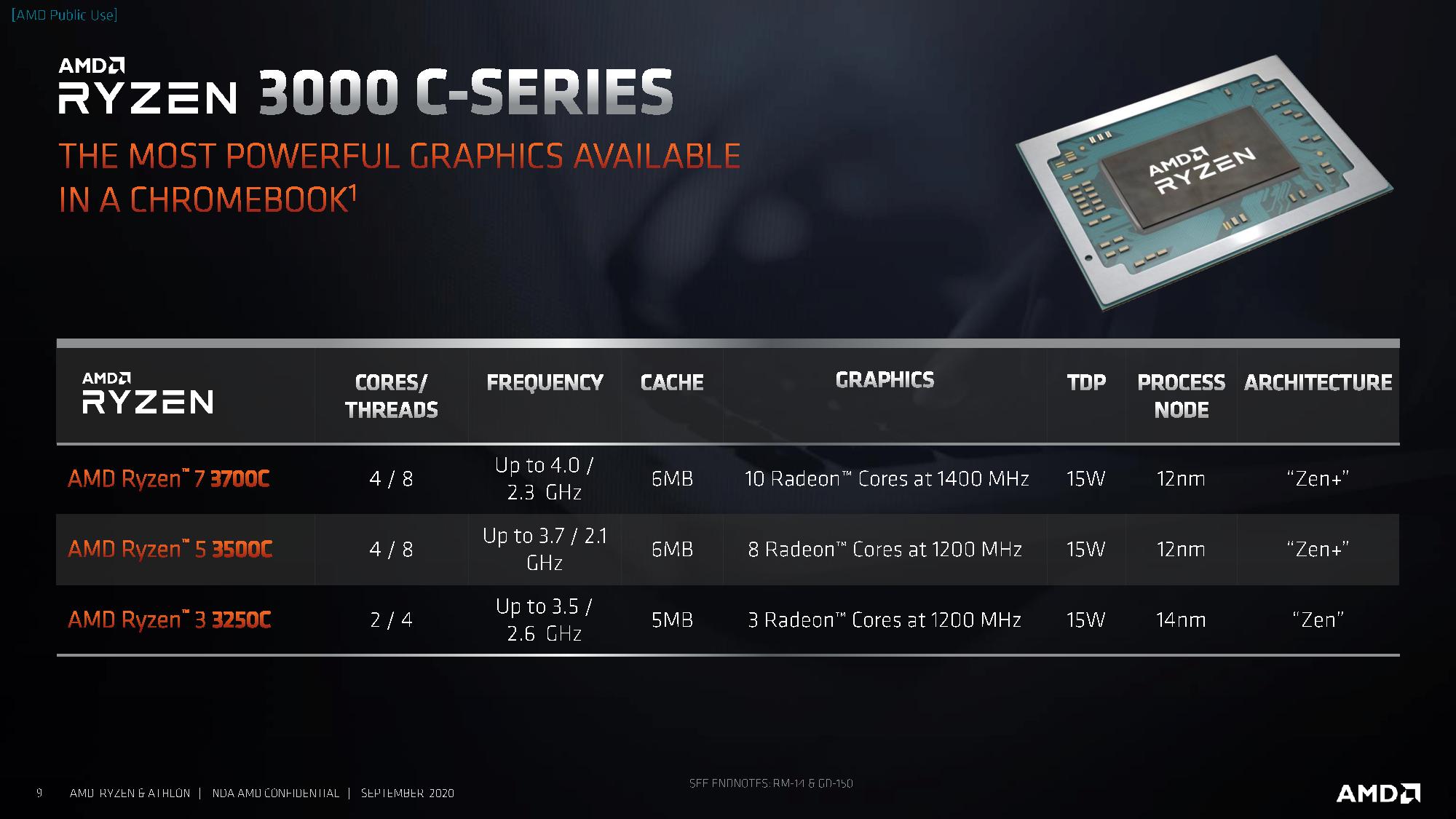
AMD aims the Ryzen C-Series processors at higher-end Chromebooks that require more processing heft and come with modern amenities, like Wi-Fi 6 and Bluetooth. However, the Ryzen C-series processors are rebadged versions of the Ryzen 3000U series of chips, with AMD's rationale for the new branding being a clear separation of the Windows- and Chromebook-branded chips.
The Ryzen 7 3700C slots in as the flagship C-series part with four threaded 12nm Zen+ cores that operate at a base frequency of 2.3 GHz and boost to 4.0 GHz. The chip comes with the 10 Vega CUs (compute units), 6MB of cache, and respects a 15W TDP envelope. The Ryzen 3 3250C slots in as the dual-core quad-thread variant with a higher 2.6 GHz base than the flagship model, but a lower 3.5 GHz boost frequency. This chip comes with 3 Vega CUs and 5MB of cache.
AMD also launched two 15W Athlon 3000 C-series processors. The Athlon Gold 3150C comes with dual threaded cores that operate at a 2.4 GHz base and boost to 3.3 GHz. This chip comes with 5MB of cache, and 3 Vega CUs clocked at 1100 MHz. The Athlon Silver 3050C comes with two cores sans threading, has a 2.3/3.2 GHz base/boost, 5MB of cache, and 2 Radeon Vega CUs clocked at 1100 MHz.
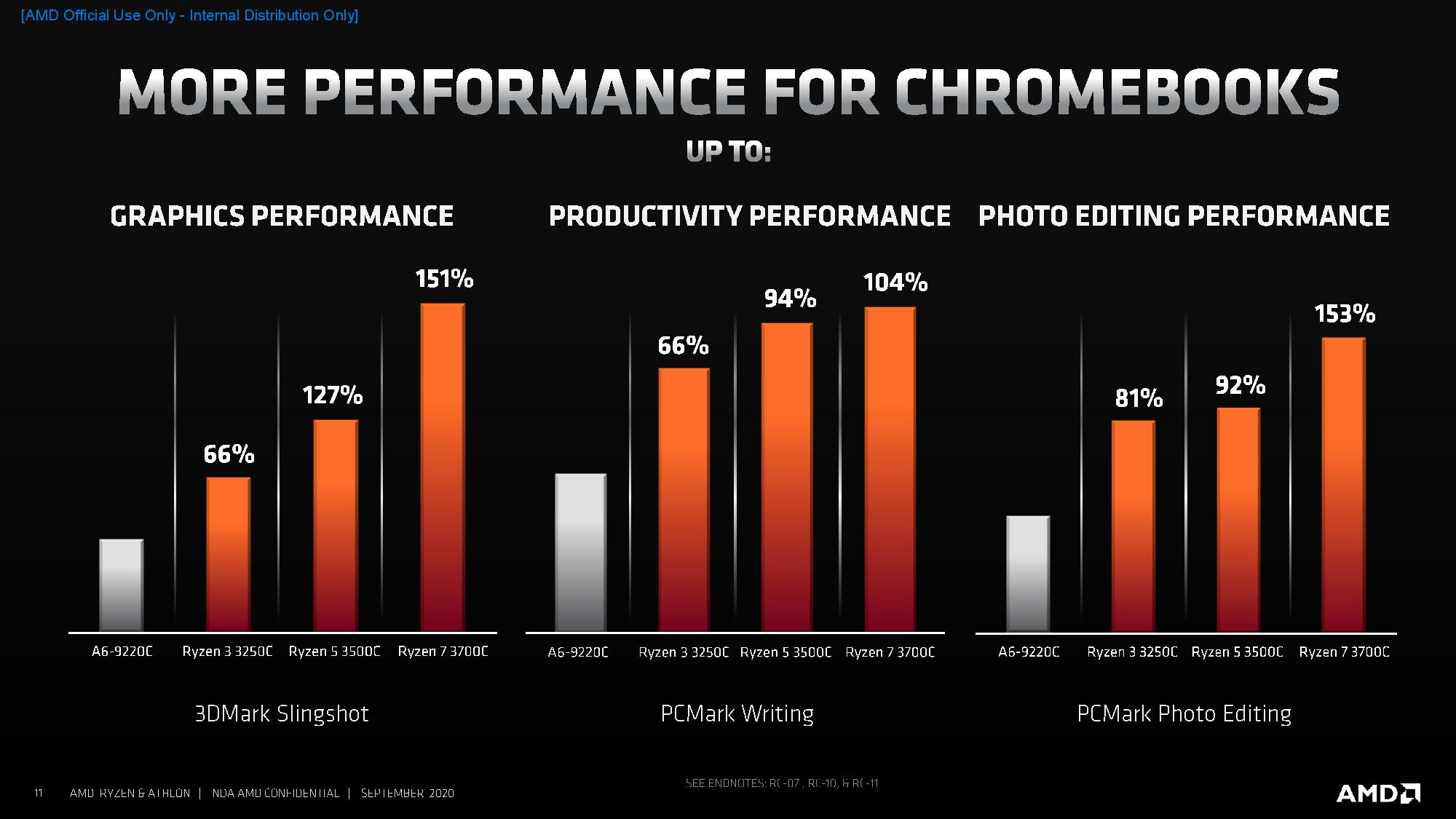
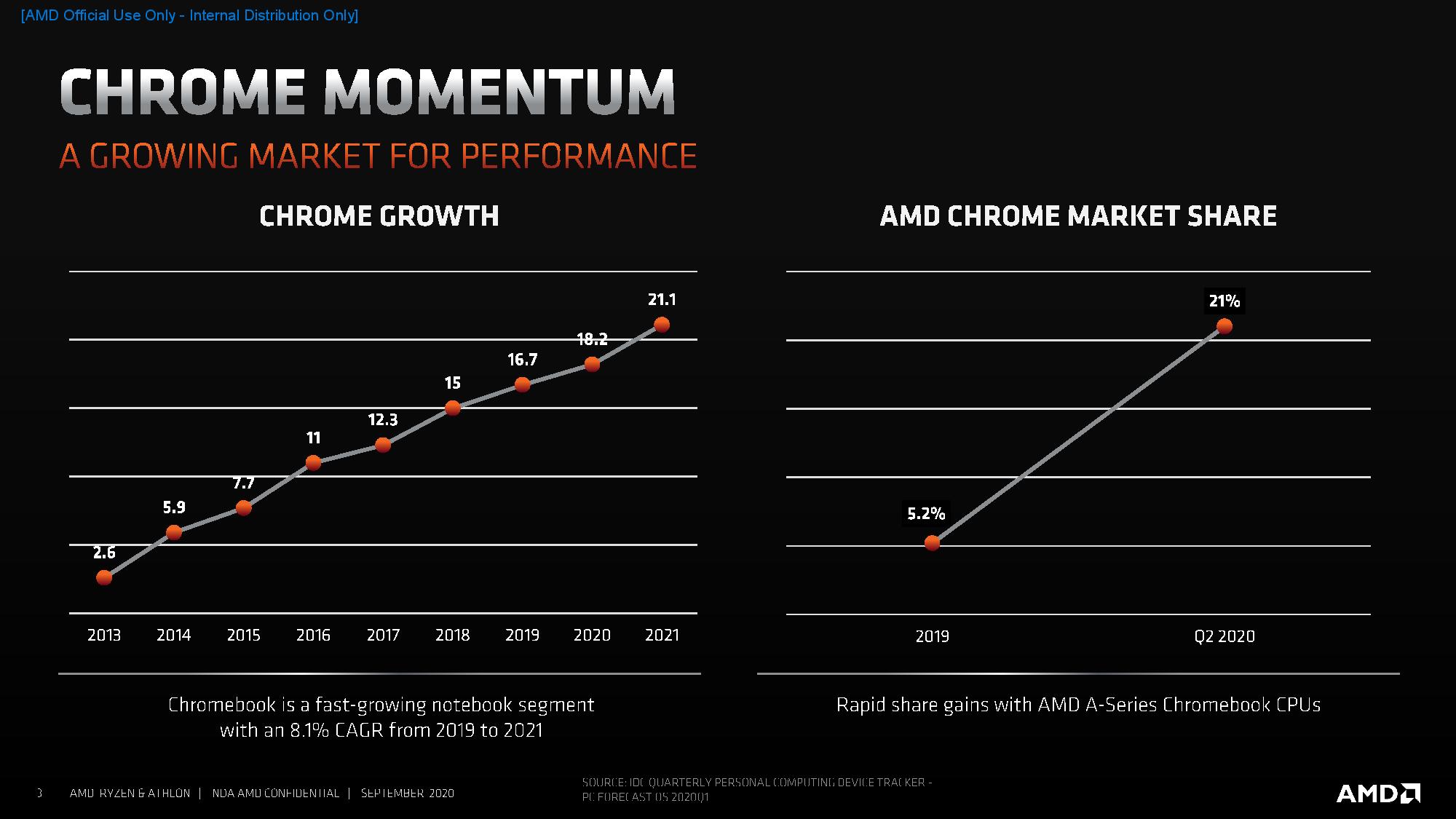

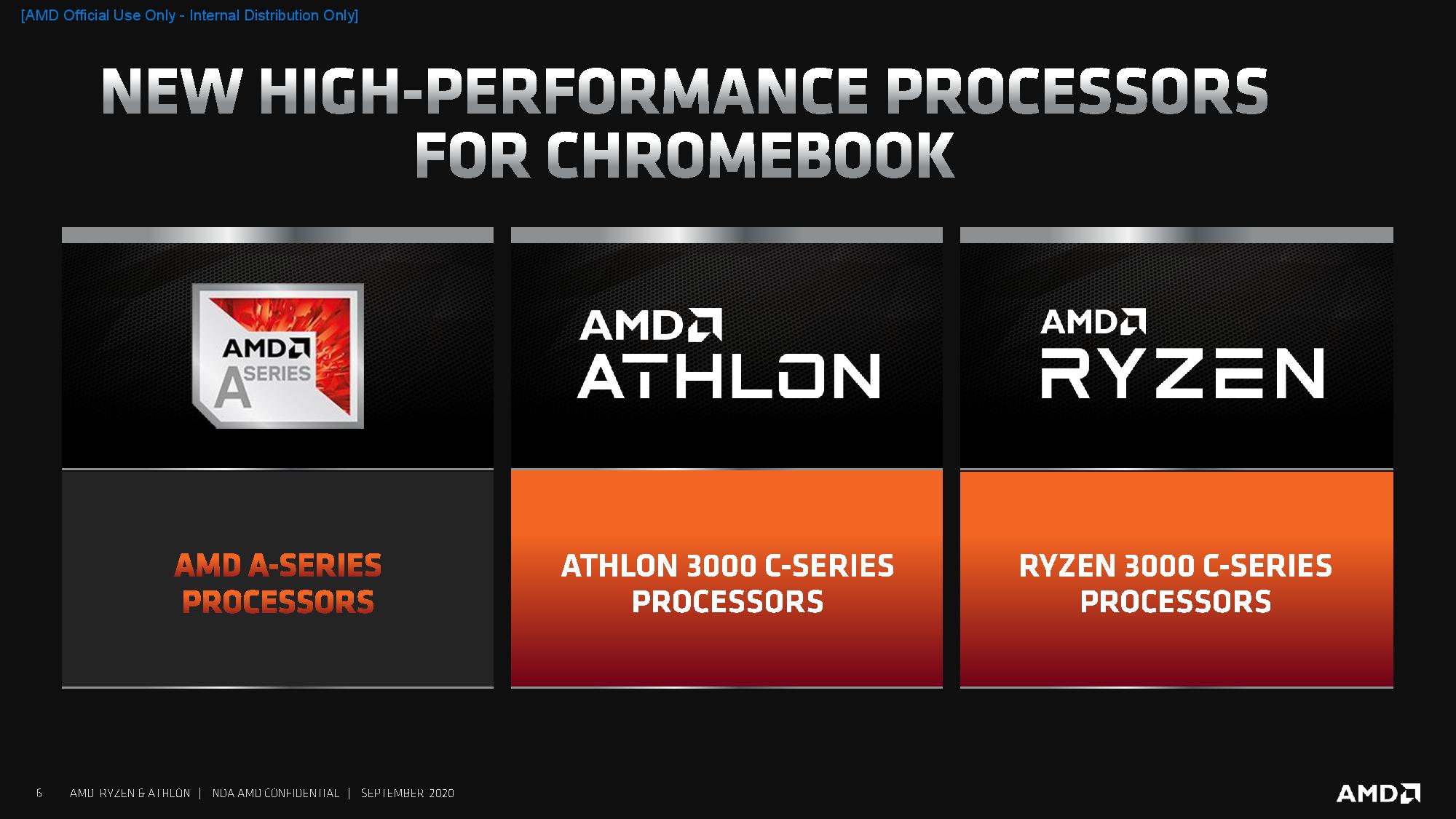
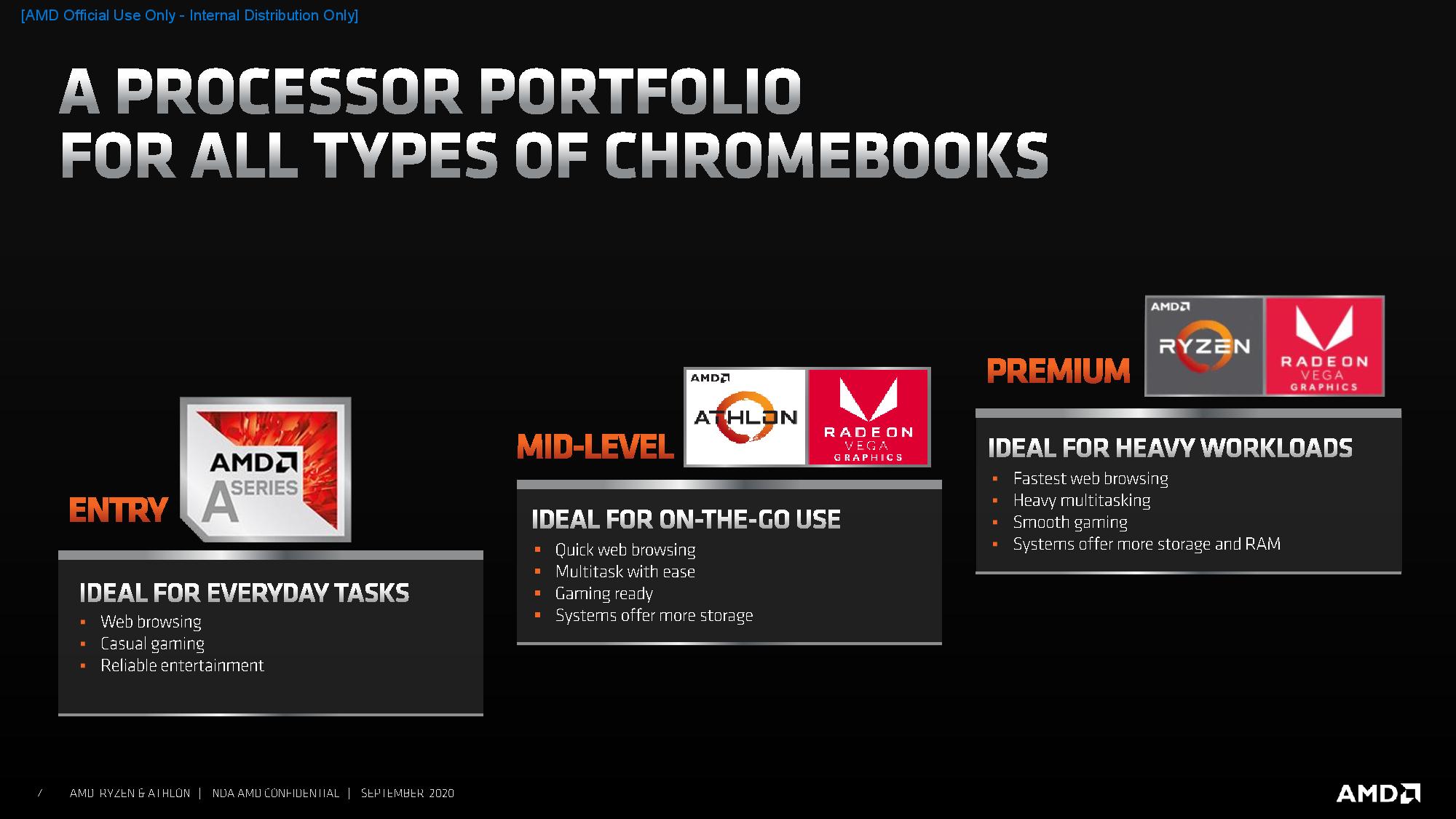
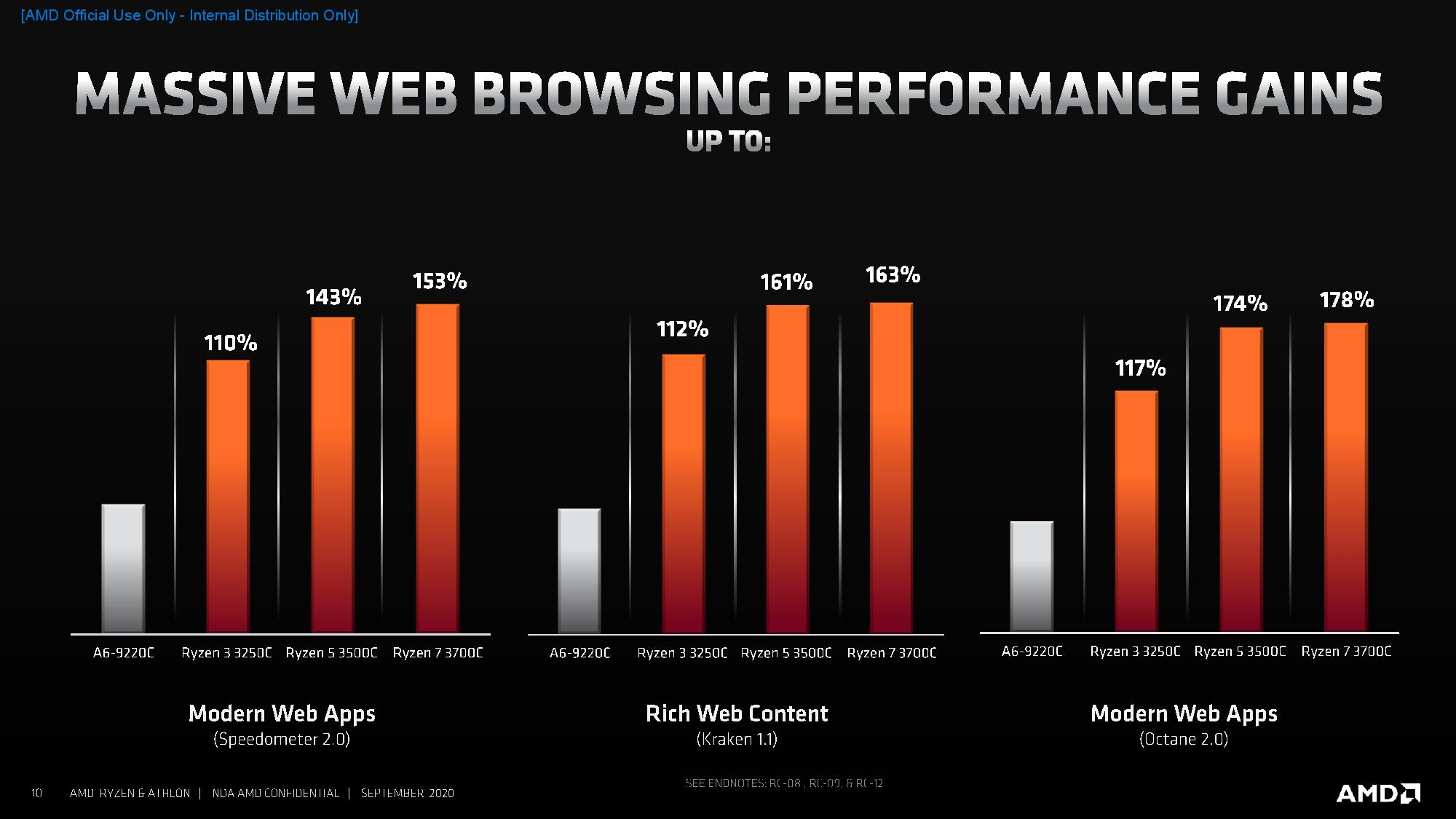
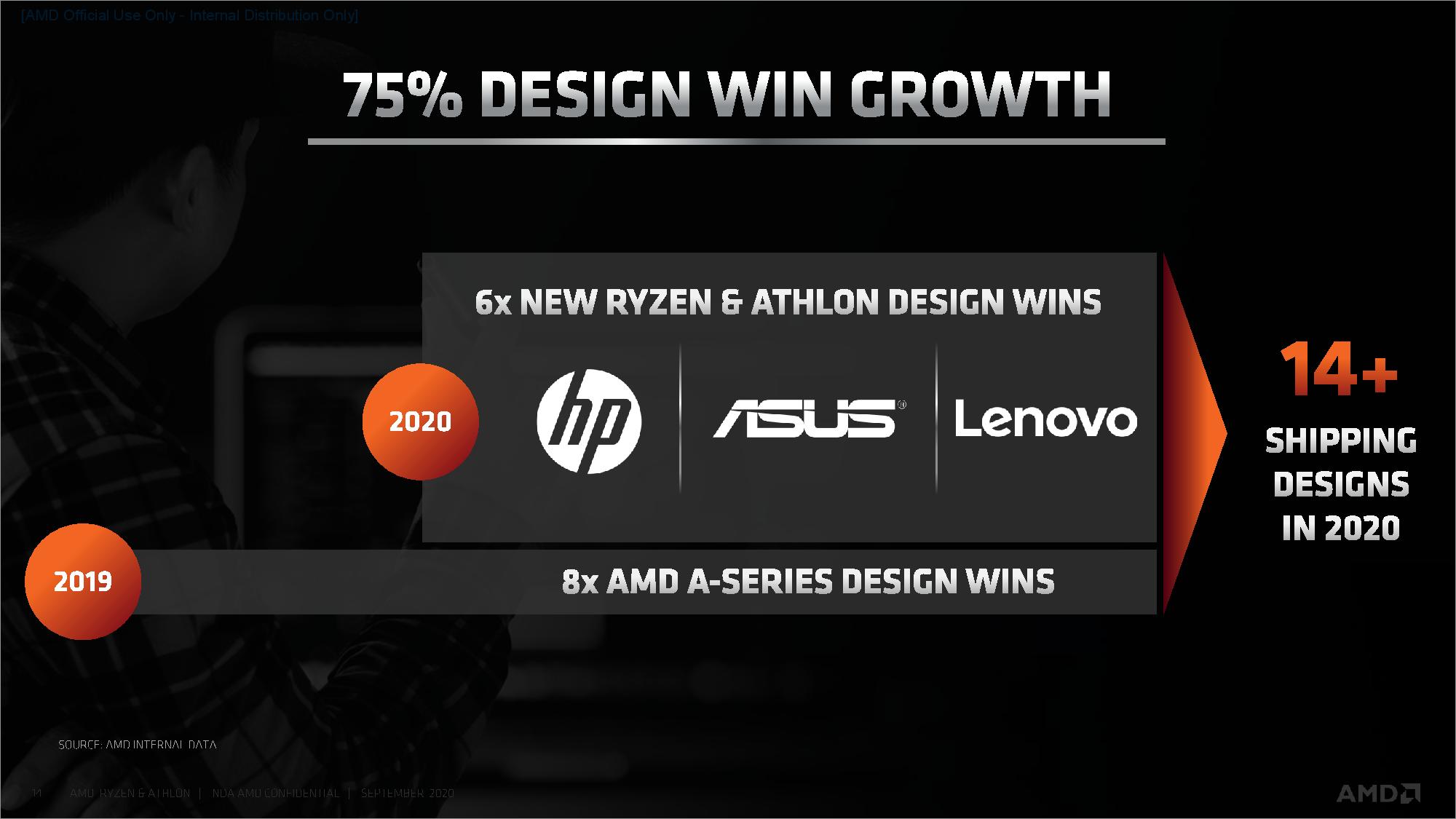
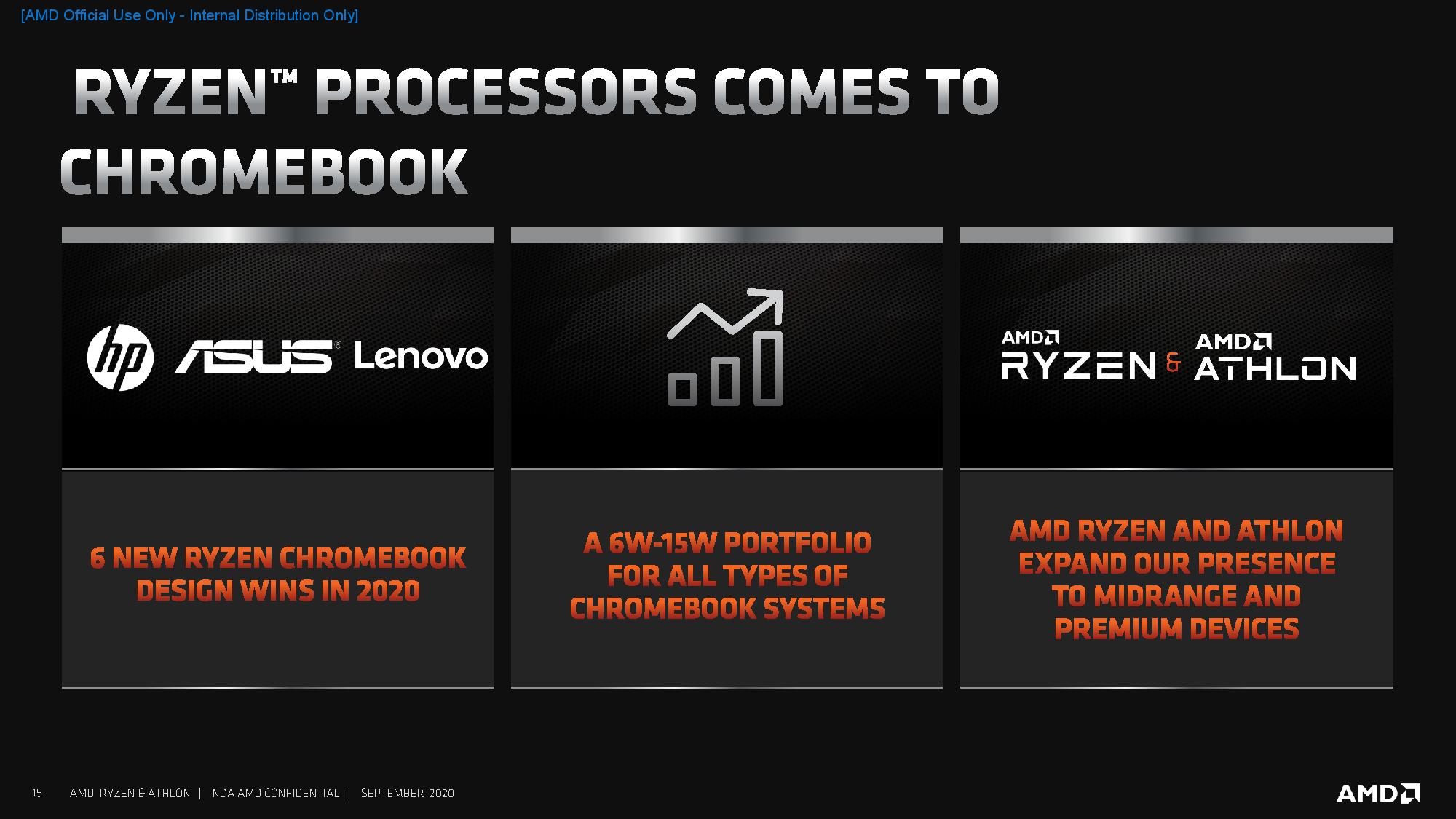

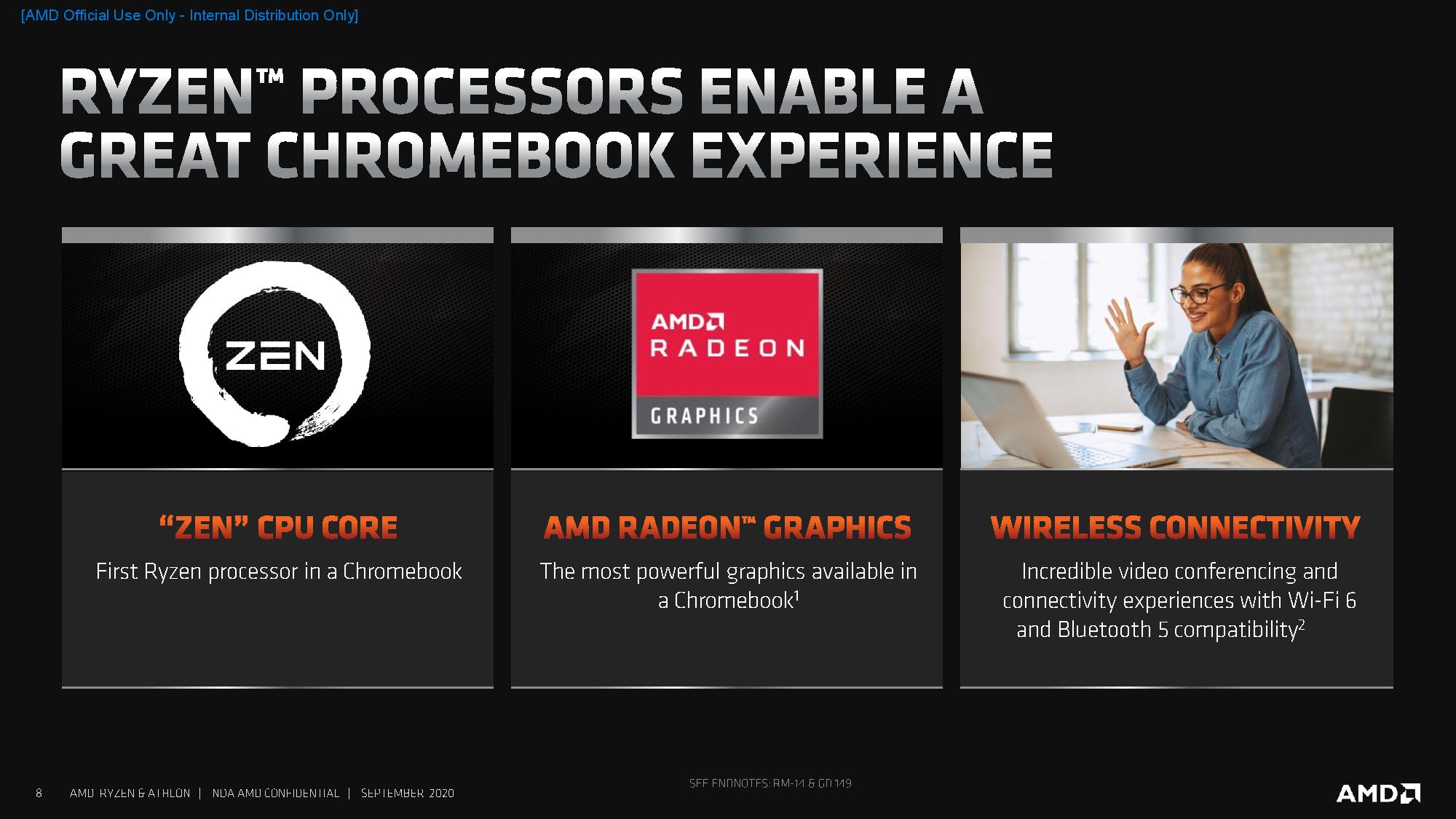
AMD shared benchmarks for its Ryzen 3000 C-series processors compared to the A6-9220C processor. AMD's benchmarks outline impressive gen-on-gen performance gains, but as with all vendor-provided benchmarks, we should take these figures with a grain of salt. Notably, AMD didn't include competing Intel processors in its performance summary. AMD says it will share comparative data against Intel and other processors in the future.
While the Chromebook market, which serves education, enterprise, and consumer markets, isn't the flashiest segment, AMD's initial A-Series A4 and A6 processors established a beachhead in the then-nascent market back in 2019. That paid off as Intel was beset by shortages that found it focusing on high-end chips and neglecting low-end, low-profit products. Meanwhile, AMD had plenty of supply as Intel ceded ground, and that paid off for AMD with a new market that generated plenty of sales, contributing to large share gains in the mobility space.
Get Tom's Hardware's best news and in-depth reviews, straight to your inbox.
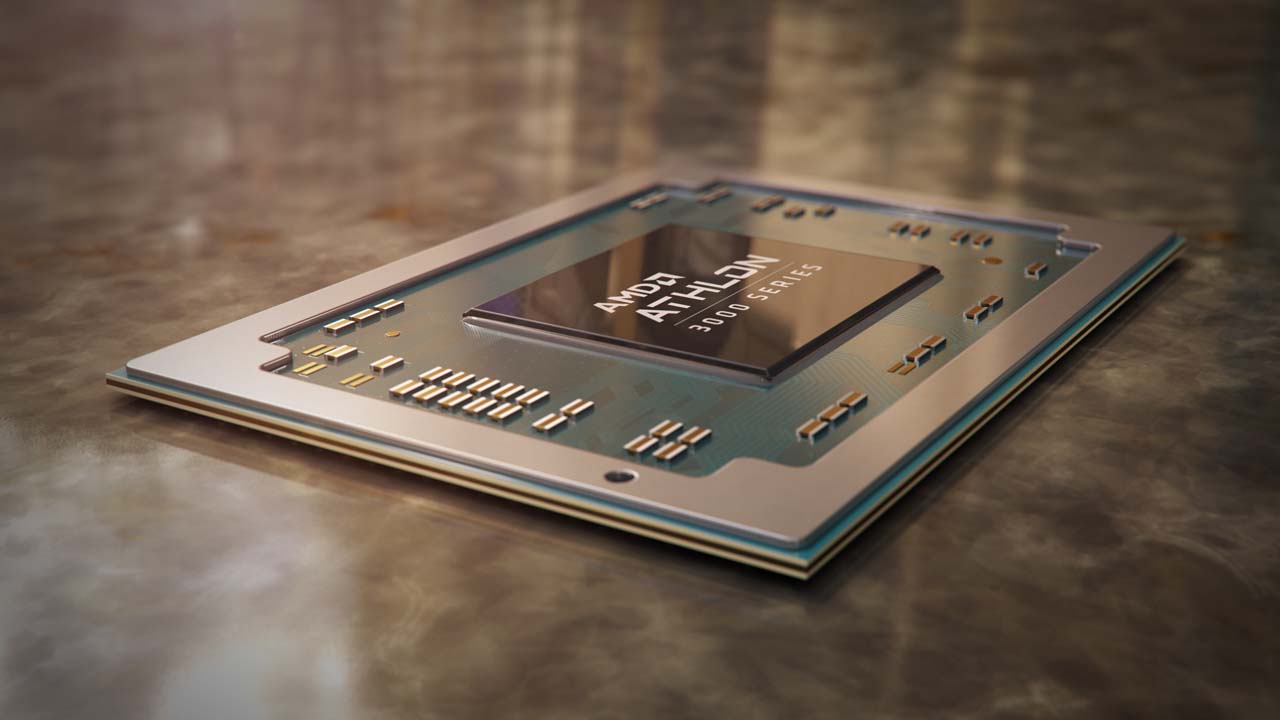
Despite a competitive market dominated by the likes of Intel's Atom, Nvidia's Tegra, and Mediatek solutions, AMD has increased its share in the growing Chromebook market from 8% in 2019 to 21% in 2020. AMD also says this segment has an 8% CAGR.
AMD says it will have six new design wins in 2020 from the likes of HP, ASUS, and Lenovo, that leverage the new Ryzen and Athlon C-Series models. The Bristol Ridge A-Series chips will co-exist with the C-Series in the market, largely to serve fanless and low-power 6W designs, and AMD already has eight design wins for those chips.

Paul Alcorn is the Editor-in-Chief for Tom's Hardware US. He also writes news and reviews on CPUs, storage, and enterprise hardware.
-
GetSmart New dumping grounds for AMD's Picasso chips... :pReply
Also, Intel Tiger Lake officially coming to Chromebooks https://www.zdnet.com/article/intel-brings-11th-gen-tiger-lake-processors-to-chromebooks/ 🐯 -
gggplaya This is equivalent to a broadwell Intel Core i7 from just a few years ago, in a cheap chromebook. Now, no one has to feel underpowered and sluggish thanks to AMD.Reply